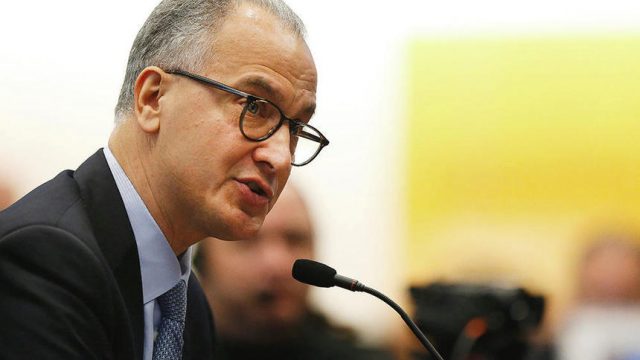It Is Absolutely the State Board of Higher Education’s Job to Weigh in When University Presidents Do Dumb Things

Over the last couple of weeks I’ve been breaking news about some very unusual, very expensive personnel decisions being made on the University of North Dakota campus.
The first was UND President Mark Kennedy’s personal assistant getting a promotion, a $30,000 per year raise, and a $25,000 per year travel allowance to commute from her job to Texas. That report inspired so much criticism Kennedy announced yesterday that he was ending the arrangement.
The second was long time Kennedy associate getting an interim, part-time gig (20 hours per week) for what works out to be a more than $200,000 per year salary. An amount roughly double what the predecessor in that position got.
Oh, and this guy got to commute to work too, this time from Boston.
Anyway, these issues came up today before the State Board of Higher Education, and at least some of the board members seem interested in doing their jobs. Dan Traynor, for instance, had some tough words for Kennedy as my colleague Sydney Mook reports:
“I reject the notion that the chief of staff position can be properly performed remotely for any extended arrangement,” board member Dan Traynor said. “A chief with no staff is no chief of staff.” […]
Additionally, Traynor said he rejects the notion that a university with a medical school, a law school and Ph.D.s available in business and management “cannot find one person with the capability and qualifications of a chief of staff.”
“It is improper to take this action at this time when we have asked North Dakota’s faculty and staff across our state and our campuses to take one for the team and to suffer through no pay raise or an effective reduction in benefits for the past two years,” Traynor said.
“If UND has an extra $55,000 laying around, I prefer that you put it toward hiring some needed faculty at the law school or other places around campus.” […]
“We have three constituencies that we report to. We report to students, taxpayers, and we report to our employees at our campuses, the faculty and staff. None of them were benefited by this decision,” he said. “I think it was imprudent and it should not go forward in any respect.”
Birgit Pruess, the faculty adviser on the board, echoed Traynor’s criticisms. “Birgit Pruess, faculty adviser for the board, said she feels similarly to Traynor and noted that the general population is upset as well as many faculty members at UND,” Mook reports.
But at least two board members tried to pretend as though responding to this situation wasn’t their job:
“We are a governing board. We don’t have the expertise or the time to get involved in all the different campus issues, and every campus has them,” board chair Don Morton said. […]
Board member Kathy Neset said she struggles with the merits of the situation but wonders whether the board should be weighing in on this because it is a campus issue.
“We hire and fire our campus presidents and our CEO, our chancellor, but this is business of their responsibility,” she said.
I’m a little flabbergasted at the suggestion that the members of the State Board Of Higher Education lack the “expertise” to understand that giving a “chief of staff” a massive raise right before she’s set to spend less time on campus is a bad decision. Or that consideration of the job performance of a university president is somehow outside of their purview.
Neset is right. The SBHE makes hiring and firing decisions when it comes to university presidents. So if you have a university president who is making bad personnel choices which are upsetting faculty, and the public in general, who else but the SBHE is in a position to do something about that?
What is the point of the SBHE if not this?
We have struggled with governance of North Dakota’s sprawling, outsized university system for decades. Lawmakers in Bismarck are debating proposals to change the governance structure this year. But I’m not sure structure is the problem.
However the governing board (or boards, as the case may be) is constituted, you must have people serving on the boards who want to do something more than serve as rubber stamps for whatever our lavishly compensated campus administrators want.




